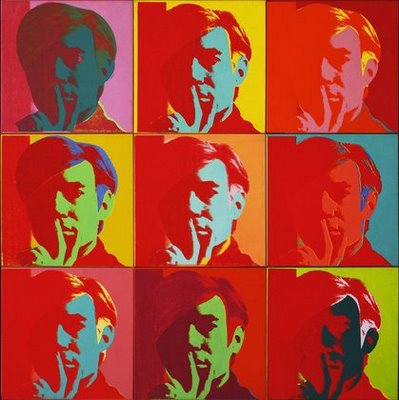Keziah’s Knife by River Hollins
Keziah’s Knife
by River Hollins
April 1876 Canaan, Goshen Territory (American South West).
It was past midnight, and Gideon Holbrooke was at his prayers. He glanced down at the shotgun across his lap. The oil, the rags, the rod for cleaning lay by his side. Some weeks he would skip church. Most weeks. He never skipped this ritual, a more religious rite than anything a preacher taught him. Prayer to a god that never preached the creed of loving thy neighbor.
The dim flicker from a single oil lamp illuminated his task. The rough oak table by his side was strewn with the remains of his evening meal. That, and the books. He’d spent too much on them, but a man needed his mind sharp. The books and twelve-gauge kept him alive. He didn’t own much else. His former wealth lay buried by his dead woman, and he wasn’t going to dig it up.
The marshall’s job had gone to him, almost by default. He hadn’t wanted it. Destiny, the preacher, had said. The saintly old man had gone on at some length about how the Lord chooses the least likely to public service, like his namesake Gideon from the biblical book of Judges. Gideon, who scared away an army with candles in jars. Gideon, the candlemaker, had more resources than Gideon, the marshall. This life wasn’t great destiny. This was what the papists called purgatory. No rest for the wicked, for it took the wicked to keep worse in line.
If he’d had enough sense, he would have left, but an obligation was an obligation, and now he was saddled with a badge because no one else would do it. He’d buried his Annie — a sweet and kind woman who could have made him a better man had that bastard of a God not taken her from him — at the foot of the mountain. Once he’d lost her he was already dead. Preacher Jack told him to find solace in prayer.
The marshall’s position was an ideal job for a dead man. Purgatory, before heaven or hell.
Probably hell.
Oil on the rag, and a gentle sweep as he pushed the rod home. Holbrooke never bothered with side arms. To be a fast draw, you needed to practice hard, to practice hard, and you needed lead and black powder. For those, you needed money. This double, an almost new Remington 12-gauge Lifter that he’d plucked off a corpse last season, was perfect. Nothing would survive it at close quarters. The previous owner hadn’t maintained it, but Holbrooke was a different sort of man. A religious man, you could say.
The town folks—who had optimistically christened the settlement ‘Canaan’— wouldn’t soon forget the would-be gunman. Scarcely more than a youth, he’d had expensive single actions, pistols too costly to practice with. That was the day they made Holbrooke marshall. For some reason, of all the deaths he’d seen, the sight of that stupid kid butchered in the dirt like so much shredded charnel haunted him more than most. Ten years on from the war against Lincoln, and he was still killing. Ten years after the war, and there was still trouble finding him. Sometimes he wondered whether this place was a kind of hell, and he could argue before the gates he’d already done his time. He pulled out the rag, and checked the stock.
A knock at the door. “Marshall? Ted Collins.”
His deputy. This was why you deputized people. So the wicked could actually get some rest.
“I’m praying.”
“Trouble at the Bucket.”
“There’s always trouble at the Bucket.”
“It’s a new girl. She’s — well we don’t know quite what to do about it. And Socrates Hardy.”
Holbrooke knew the correct way to say the name, but Ted pronounced it Soh-crates. So did Hardy.
Socrates Hardy, a trouble-maker and probably a wanted man. Holbrooke had heard he’d been contracted for the MacKenzie ranch upriver from the town, but Holbrooke suspected he supplemented his pay with other activities.
“Where’s Madame DuPont?”
“Out of town. Something about seeing a dressmaker. She was supposed to be back today.”
The Bucket had recently changed hands, and had been renamed something French and fancy no one could pronounce, but it would always be the Bucket of Blood saloon. No fancy French madam or fancy French name was ever going to make the Bucket high-toned. The true nature of the place clung like old blood like it did to everything. And everyone.
Holbrooke plucked the shells from off the shelf by the door.
###
The usual crowd crushed in a nervous ring, blocking Holbrooke’s view. Not a brawler’s ring. It was almost quiet. The subdued nature of the crowd was not a good sign. Andrew Watson, a farrier, was talking in a soft, gentle voice, the sort he liked to use with horses. “Now, see here Miss Keziah, ain’t no need to hurt Mr. Hardy further. I’s sure he’s very sorry.”
“Mmmmmm mmmmph!” A snarl of muffled protest.
“I’ll have a black eye.” Irish, or slightly so. There was something else in her accent. A light voice.
A sweet voice. A voice filled with pure murder.
“We’ll put a bit of beef on it, gone in no time. Just put down the knife and let Mr. Hardy breathe.”
“Mmmmmph! Mmmmmph mmmppph!”
Holbrooke pushed his way through.
A young woman crouched on the floor, dressed in a way he’d never seen. In her late teens or early twenties, her flaming red hair piled high, her milk-pale neck and shoulders criminally bare. The girl’s left eye showed signs of purpling. Her skirts were where a bright, vibrant blue and far, far too short for any respectable woman, flaring just over her knees. Her limbs were encased in bright scarlet boots that laced past the calf. The dress was rucked high enough to provide a tantalizing glimpse of thigh against the dark weave of her stocking.
She was sitting on a man, her skirts obscuring his head.
Holbrooke nearly laughed aloud at the cowboy’s predicament. She was actually sitting on Hardy’s head, leaning forward in an animal crouch, her breasts about fit to spill from the lacing. She held a wicked double edged boot knife right at his groin. Socrates Hardy was going nowhere, a two hundred pound nightmare held in check by frilly skirts and a sharp knife.
“What happened?” he asked.
“Mmmmpph.”
The girl’s eyes flicked to the badge. Then the Remington. She pressed the knife into Hardy’s thigh a little harder. Socrates stilled.
“I don’t mind the black eye, Mr. Marshall. He called me a whore.”
Holbrooke exchanged a puzzled glance with his deputy. One she caught.
“I’m not a whore.”
One of the bad old boys at the back just couldn’t resist saying what they were all thinking. “Cher, if you ain’t a whore, why you wearin’ a whore’s uniform?”
“Shut up, Mason.” Holbrooke crouched to her level, balancing the shotgun in one hand with a practiced ease, keeping the barrel pointed away from the girl and her prisoner. The girl looked pushed beyond her limits, a blush of pink spread over her pale skin. Beads of sweat had broken on her brow. Dangerous. There was a sliver of something dark and haunted in her eyes. He’d seen it before, a few times, in a woman’s face. Right after the war, especially. He reached for the name he heard the farrier use. “Miss Keziah? That your name? It’s real pretty.”
“Don’t sweet-talk me, Mr. Marshall.”
Time to change course. “Ma’am, if you’ll give me the knife, I’ll see you’ll come to no harm. But either you’re gonna have to cut him in cold blood, or let him go.”
That brought a grunt of protest from the smothered man. “Mmmppph!”
The girl had the shakes, a tremble to her hand. Holbrooke shifted his feet.
“Don’t come any closer.”
Sweet baby Jesus.
“Would someone please explain to me,” came a clipped, French voice from behind him,“what my little bluebird is doing sitting on the head of my patron?” He glanced around at the woman. Mrs. DuPont, the owner. Dressed like a real lady, except she wasn’t. She towered over the scene, oozing authority. She didn’t look happy. “Keziah! Qu’est-ce que c’est? C’est ridicule. Déposez ce couteau!”
You didn’t have to speak Frog to know what she was saying. Holbrooke’s mouth fell open. Until now he’d always assumed DuPont faked her accent for the then benefit of her ‘patrons.’ Now it seemed she really was French.
The girl met that with a torrent of fluent, rattling French. She didn’t take her knife from Hardy’s thigh, but her left hand stabbed the air in angry gestures. The madam responded in equally vehement tones.
Holbrooke rose from his level crouch. “Can we have this in a Christian tongue?”
“Is it not obvious, Monsieur Marshall? Monsieur Hardy called my bluebird a putin and tried to grab at her. She resisted. When he pressed, she avoided his grip, and he slapped her across the face. She — how do you say — took him down to the floor?”
It shouldn’t have been possible for a little girl to floor a ranch hand like that. Hardy must have been drunker than was usual.
“Put away the knife, Keziah. Release our patron. It was but a misunderstanding.”
Keziah complied, rolling off the unfortunate cowboy with a snarl. She didn’t hand the marshall her knife. She stuck it back in her boot-top. Socrates leaped to his feet, shot the girl a horrible look, and bolted from the room to a chorus mocking laughter of the rest of the men. Holbrooke knew would have to keep an eye on him. Humiliated men were more dangerous than drunk ones.
Holbrook gazed in amazement as Keziah, her eye swelling dark and ugly, sat herself down at the piano. The new piano. There had been no piano at the Bucket since its predecessor was shot up eighteen months previously, and the town had been humming with gossip about it since it arrived the previous week. Keziah waved away the cook who’d come out with beef for her eye.
“Afterward. I am paid to play, and I shall play.”
With the grace of an elegant lady in her music room, straight-backed and proud, she closed her swollen eyes as her fingers caressed the ivory. The sight of her like that clawed out a half-buried memory. A girl and her mother at a piano, smiling at him over the music stand. Holbrooke slammed the thought back and locked it down.
“So Ms. Keziah doesn’t — she ain’t a —” Holbrooke grappled for the politest term he could find, but the words failed him as a lively tune cut the air. He was no longer a real judge of the finer things, but he could tell the girl was gifted. The room returned to normal.
“Mais non, Monsieur Marshall. Keziah is not one of my doves. She is my new pianist. All the best houses have them. She is an artiste.”
* * * * THE END * * * *
Copyright River Hollins 2017





Subtle brilliance. The artist mistaken as the whore. The world really hasn’t changed so much since that wild time after the war with Lincoln.
This one has everything. Sensuality, violence, the hint of something better just out of reach.
And a surprising bit of insight from a woman writer, showing detailed knowledge of weapons few men understand. Revolvers in that period after the war were expensive and few men had the wealth to learn how to use them.well.